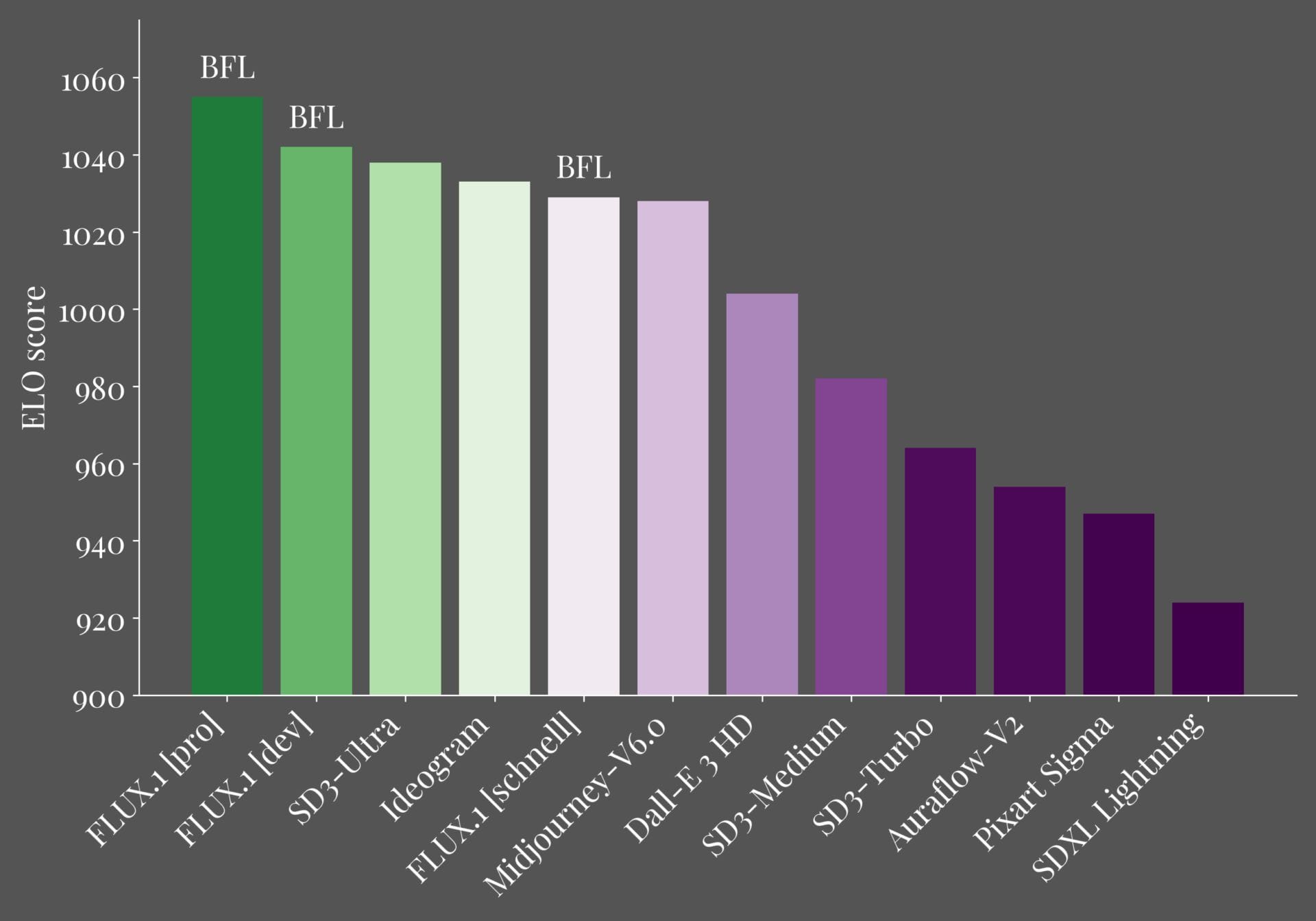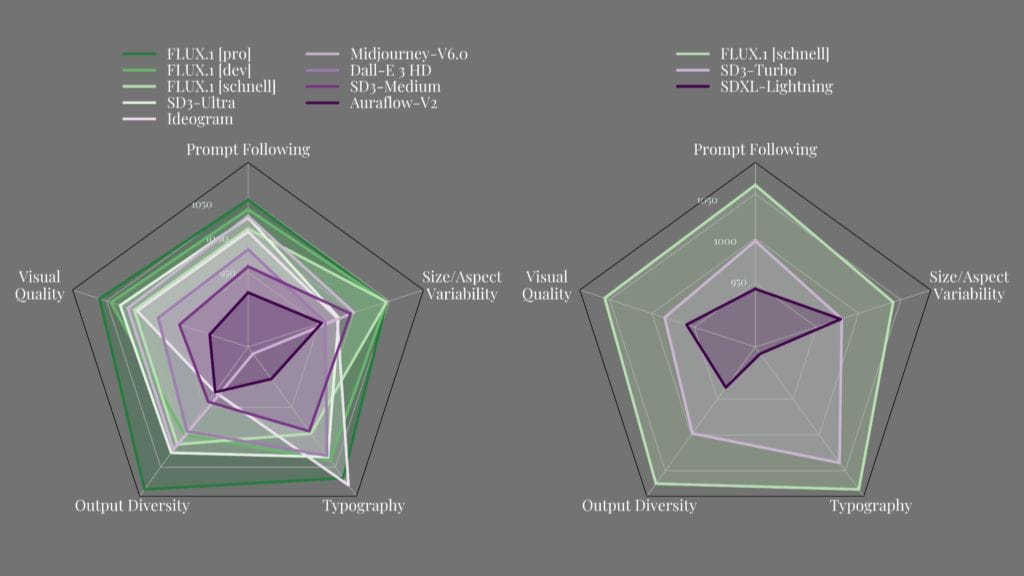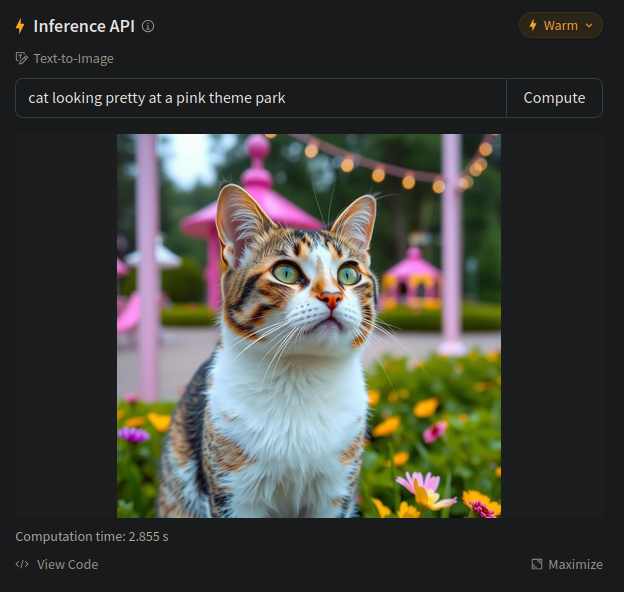
Generative artificial intelligence (GenAI) models are increasingly becoming better at producing creative works, with 2024 being a year where we are seeing an increase in new GenAI models being shipped out, particularly open-source ones.
Earlier this year, we had Stability AI launching Stable Audio Open, a model for generating high-quality audio data, then we had AuraFlow, a text-to-image generation model that's quite resource intensive.
Now, we have yet another AI-focused outfit, Black Forest Labs, entering the space, equipped with $31 million in series seed funding. They have introduced a family of GenAI models, “Flux.1”, which consist of both closed-source, and open-source options.
Flux.1: Should Midjourney Be Worried?

Comprised of a team that has an extensive track record in developing GenAI models like the original Stable Diffusion, Black Forest Labs believes that:
Widely accessible models not only foster innovation and collaboration within the research community and academia, but also increase transparency, which is essential for trust and broad adoption.
In that line of thought, they have introduced three variants of Flux.1, the first is the closed-source FLUX.1 [pro], which is the most cutting-edge model that Black Forest Labs has to offer currently, it is locked behind a login wall.
The second one is the open-weight FLUX.1 [dev], which is a slightly watered-down version of the pro that can achieve similar levels of performance and prompt adherence capabilities, but in a more efficient avatar.
And, finally, the third one is the Apache 2.0 Licensed, FLUX.1 [schnell], which is the fastest model in the Flux.1 family, that has been fine-tuned for local development and personal use.
Both the dev and schnell models are compatible with ComfyUI, and make use of a hybrid architecture of multimodal and parallel diffusion transformer blocks, scaled to 12B parameters.
They have also implemented rotary positional embeddings and parallel attention layers to improve model performance and hardware efficiency.
To back their claim, Black Forest Labs shared some benchmarking numbers pitching Flux against popular GenAI models. The first is an ELO score rating of the Flux.1 family:

As you can see, the pro and dev variants are quite close to each other, and the schnell variant is not too far away. They also shared another more detailed radar chart, which features many judging factors such as prompt following, size/aspect variability, typography, etc. Take a look. 👇

You can quickly try it on HuggingFace using its "Inference API" to get an idea:

For a detailed test trial, you need to set it up yourself to compare, considering you have access to Midjourney. I don't have access to it, so I can't compare, but I noticed Decrypt shared some pretty detailed insights comparing it to Midjourney.
In their testing, comparing Flux.1 with AuraFlow, Stable Diffusion 3 Medium (SD3 Medium), and Midjourney, they found that on average, Flux.1 was able to deliver good-quality results while adhering to the prompts very well.


Credit: Decrypt
Even though it required more detailed prompting, they found that results were accurate and realistic. For an alternative to Midjourney, they suggest people to go for the pro variant, and for an alternative to SD3 Medium, the dev and schnell variants.
If the above benchmarks shared by Black Forest Labs and Decrypt are taken into account, then Flux looks like a real performer that can give Midjourney a run for its money.
Plus, it's good to see open-source GenAI models (dev & schnell) that perform well. 😃
📥 Get Flux.1
You can get any of the three Flux variants from the official website, which has options to try it via Replicate, fal.ai, and Hugging Face.
You can access the official inference repository on GitHub.
💬 Are you going to try out Flux.1? If you do, let me know how it went!
- Even the biggest players in the Linux world don't care about desktop Linux users. We do.
- We don't put informational content behind paywall. Your support keeps it open for everyone. Think of it like 'pay it forward'.
- Don't like ads? With the Plus membership, you get an ad-free reading experience.
- When millions of AI-generated content is being published daily, you read and learn from real human Linux users.
- It costs just $2 a month, less than the cost of your favorite burger.
Become a Plus Member today and join over 300 people in supporting our work.










